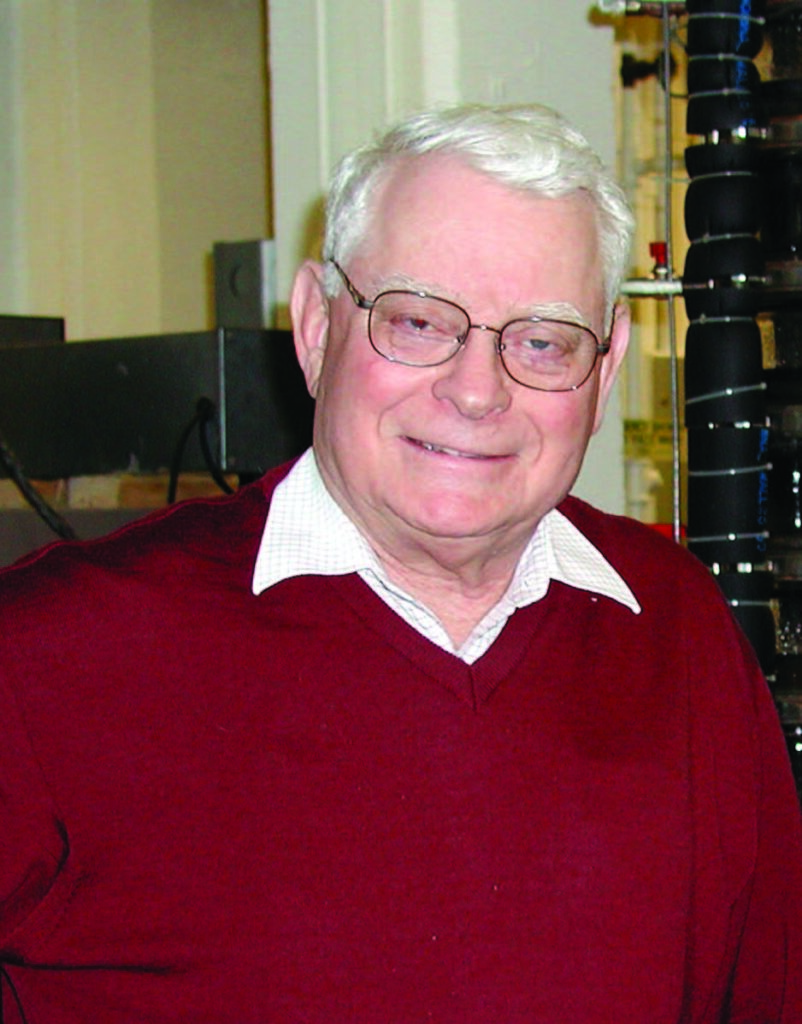
When I asked John Prausnitz about his interest in science growing up, he said “I really recognized that chemistry is life. Chemistry is how we live, and the body, what we eat, and what we inhale. Chemistry is it.” This is one key to understanding John Prausnitz’s approach to science and to life. He doesn’t separate them. His intellectual pursuits are not narrow. Although less and less so, engineering can still be understood as “mere” applied science, a question of fitting the fundamental principles long ago worked out by pioneering scientists to industrial or commercial processes. If this supposition was ever true, it really began to come apart around the time that Dr. Prausnitz entered the field of chemical engineering in the 1950s. And while he faced a brief moment when a possibility of a career in the private sector was presented to him, he quickly chose instead to devote his entire career and the rest of his life to UC Berkeley.
The mind of Dr. Prausnitz works on at least two tracks. First, he considers the challenges beyond the confines of the academy; but he also ranges widely over scientific and humanities literatures for tools to help him to interpret and solve these problems. He was a key mover in the foundation of the field of molecular thermodynamics: using the principles of molecular behavior worked out in physical chemistry to predict properties and behavior of mixtures of substances in various states. The scope of this revolution in engineering is hard to grasp until one considers the fact that many large-scale chemical processing factories were designed, constructed, and operated without careful consideration of chemical behavior at the molecular level. Some of his models that simplified the interactions of types of molecules were adopted by entire industries and would dramatically improve their efficiency and efficacy over the decades.
By immersing himself in the literatures of different scientific disciplines, Prausnitz attacked problems with a much broader perspective than if he had stayed in his field, respecting the boundaries of disciplines. Over the decades, Dr. Prausnitz has also been a witness to the expansion of the field of chemical engineering, from petroleum production processes to electro-chemical engineering to bioengineering. Prausnitz was not merely a champion on the sidelines of these new subfields; he immersed himself, quite late in his career, in molecular biology in order to collaborate on contributions to bioengineering, drawing especially on work with the Department of Energy in its sponsorship of biofuels research. Again, Prausnitz brought to bear his expertise in molecular thermodynamics to help place the research on a stronger footing.
Always, however, Dr. Prausnitz was thinking about the larger context and meaning of the work, and as an academic, this meaning had a lot to do with teaching and students. Like all great mentors, he took an active role in the progress and wellbeing of students and collaborators. As an enthusiast of the history of science, he understands that science is above all a human endeavor and a social process.
– Paul Burnett